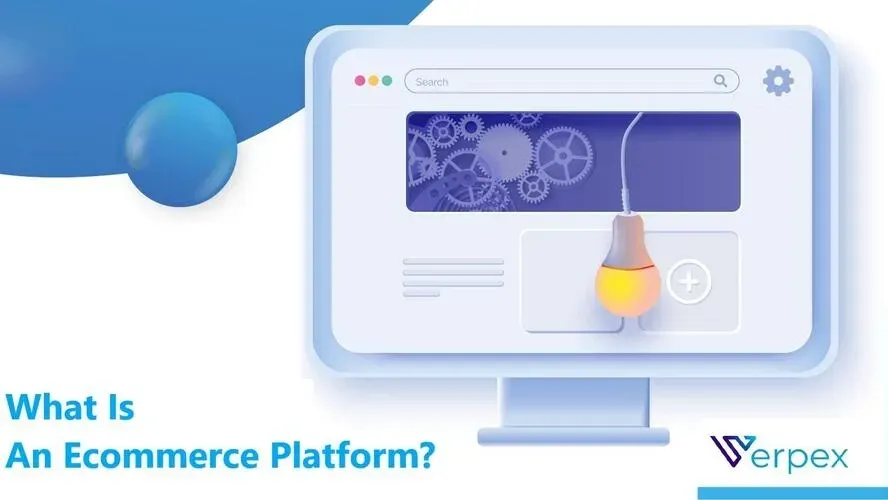If you’re in the process of deciding to launch an online shop from scratch, an eCommerce platform is a complete lifesaver. Regardless of whether your business is B2B or B2C, eCommerce platforms are essential to any online operation. They provide a way to share and sell products online, which makes them an accessible way to connect with a wide pool of potential customers.
In this section, we will discuss what an eCommerce platform is, types of eCommerce platforms, and how to choose an eCommerce platform for your business.
What Is an Ecommerce Platform?
An eCommerce platform, such as WooCommerce, Shopify and Magento, is the go-to resource for any online business that wants to sell or deliver digital products or services. It’s essentially a digital resource for managing a range of core functions and services related to selling products or offering services online.
Ecommerce platforms help small businesses access a wider range of tools and resources. By using e-commerce platforms, small businesses are able to manage the complex processes of their business more efficiently.
Small and medium-sized businesses can benefit from e-commerce platforms, which allow them to better gauge their sales and marketing strategies as well as sell more effectively.
Types Of ECommerce Platforms
1. SaaS (software-as-a-service) platforms
SaaS eCommerce platforms allow you to remove a lot of the hassle from operating an online business. Instead of developing and building an open-source solution or a customer solution, you basically rent out the platform.
When compared to the other options, SaaS eCommerce platforms are a lot cheaper. The SaaS providers manage PCI compliance, hosting, security, product updates, and every other task that comes with managing your own software.
Examples of SaaS eCommerce platforms include Magento, Shopify, and BigCommerce.
2. PaaS (platform-as-a-service) platforms
The PaaS provider hosts the software and the hardware and manages the hosting infrastructure. PaaS and SaaS options are best for smaller companies or businesses that are just getting started in the eCommerce world. They offer professional support and setup, but they typically charge a monthly fee to use the site.
Some PaaS providers are Magento Commerce Cloud, Microsoft Azure, and Heroku.
3. CaaS (headless commerce) platforms
Headless commerce is a type of e-commerce platform that uses AI to automatically create content and deliver it to consumers. It eliminates the need for human intervention and can be used to automate marketing, customer service, product development, and more. Such platforms are ReactJS and Headless Commerce.
4. On-premises platforms
On-premises platforms are highly efficient and scalable in comparison to their counterparts. They offer complete control over the software components you want, which allows you to maximize your IT budget. You also have complete control over the security of your data and system. Two of the numerous on-premise platforms are Magento Open Source and WooCommerce.
How To Choose An Ecommerce Platform
Determine your eCommerce needs
The first step in choosing an eCommerce platform is to determine your eCommerce needs. The process of selecting and finding a solution will be made a lot easier once you know what your requirements are. Think about whether you’re planning to expand to more markets and stores, what experience and features do you want your site to offer, how will the orders of your customers be fulfilled, and so on.
Budget
The next thing you need to determine is how much you’re willing to spend on your e-commerce platform. Make sure that you go beyond the costs on the surface, such as development and licenses, and consider expenses like consultation, setup, maintenance, and so on. Ecommerce platform costs will vary depending on the solution, the sales volume, and the size of your business.
Research eCommerce solutions
After you’ve got an idea about how much you’re willing to spend, you should research eCommerce solutions available on the market. After you’ve found the one that suits you best, you can go ahead and pick that one.
Ecommerce Platform Features

- Promotion opportunities
There are plenty of ways you can promote your online stores with most eCommerce platforms. The main thing you should take into consideration is SEO, so make sure you remember to look for SEO-friendly eCommerce platforms.
- Support
Technical issues are something that you’re not going to be able to avoid when you’re operating an online store. You will be able to reduce downtime and troubleshoot these issues quickly with support from your eCommerce platforms. When researching the support that your eCommerce platform offers, start with the documents on their website. Look for guides, how-to articles, and a FAQs section. Moreover, make sure that you check out the ways to get in touch with their customer support team. Check which channels you can contact them and how quickly they resolve your issues.
The data of your customers needs to be protected. Data leaks and breaches aren’t good for your business. For this reason, you need to look for an eCommerce platform that provides proper security options. The eCommerce platform should offer an SSL certificate and meet the PCI security standards. However, besides these standard security practices, a lot of eCommerce platforms offer extra options, such as protection from DDoS attacks and fraud.
- Payment processing
Payment processing is a complex process that is essential to an online store. You should take into consideration the payment methods that are preferred by your customers, the currencies you work with, the tax system, and more. If you need to expand the opportunities of your eCommerce platform, you can integrate 3rd party services with your platform.
- Store management system
In order to operate a store, you need an order management system, a product management system, and a return management system. The eCommerce platform you choose can allow integration with services that provide these systems, or it can offer them as part of the standard package.
- Design options
Most eCommerce platforms provide plenty of ready-to-use templates and themes so you can customize the appearance of your website very easily and quickly. When picking an eCommerce platform, it’s important to pay attention to how many paid and free templates the eCommerce platform provides.
- Interface
Any eCommerce platform needs to have an intuitive and user-friendly interface that you will use for the creation of your website. However, using certain eCommerce platforms for building a website might be a bit more complicated since some of them require technical skills, such as WordPress experience or HTML knowledge. Something you should look for is a platform that will not only let you create pages for your products but also blog posts. This is a feature that might be useful when you decide to write SEO-optimized articles and improve your website search results or acquire new customers with a content marketing strategy.
Ecommerce Platform Comparisons
WooCommerce vs. Shopify
WooCommerce is a more technical platform that will require a willingness to learn or a certain degree of knowledge in order to use it. When compared to Shopify, you won’t need to know any code or have technical skills in order to use it. Something that might be restrictive in the long run with Shopify is that it doesn’t have many SEO apps, while WooCommerce offers you a range of SEO plugins, as well as helpful SEO guides.


WooCommerce vs. Magento
Both Magento and WooCommerce are widely popular, and they have a wide range of features. WooCommerce is cheap to set up and easy to use, which makes it perfect for small businesses that need to get off the ground quickly. However, Magento offers a couple of features that eCommerce lacks, such as product personalization, advanced pricing rules, wish lists, grouped items, and product reviews.
Hosting For Ecommerce
Creating an eCommerce store comes with the task of choosing eCommerce website hosting. By hosting your own eCommerce store, you can ensure that your business is reachable and trustworthy and add a level of professionalism to your brand. Choosing the right eCommerce hosting couldn’t be more of an important task. You need a reliable and speedy hosting provider that will offer you competitive features such as better speed, encryption, backups, bandwight and file storage, as well as support to help your online store succeed.
Ecommerce Platform Vs. Marketplace
Marketplace and eCommerce are two different types of platforms. A marketplace is a platform where customers purchase goods, connect and find sellers. On the other hand, an eCommerce store is a website built with the help of eCommerce solutions such as Magento, WooCommerce, Shopify, and so on.
Conclusion
It is essential that you make sure the e-commerce platform you choose includes needed features, functions, and standard tools for your store. It is important to consider what your e-commerce store will be used for besides just selling products and equipment.
When planning a store, there is much more to consider than just product categories and daily specials. It's best to settle upon a system that sells customers value without losing sight of changes that can come with the eCommerce world.
Frequently Asked Questions
How customizable is my ecommerce store?
This depends on the eCommerce tool you use. For example, Magento is 100% customizable, and you can amend just about every aspect. Shopify on the other hand has far fewer customization options.
Are there different types of WooCommerce hosting?
You can go for a shared option, which is the cheapest, or upgrade to other business solutions like VPS and dedicated hosting, which are designed to handle more site traffic and come with faster speeds.
How much does WooCommerce hosting cost?
Prices are very reasonable and start from just $3.50 per month at Verpex.
How easy is it to switch between WooCommerce and Magento?
At Verpex we can host either site no problem. However, you’ll need to be aware that there can be some difficulties due to the customizable nature of Magento, and functionality could be lost.

Bruno Mirchevski is a web hosting services expert. He has spent years researching the niche, exploring the most diverse aspects of Shared, VPS, WordPress, Cloud Hosting, Dedicated Servers, Resellers, etc. With his extensive knowledge and experience, he can grant you meaningful insights on our blog, whether you are a beginner or a hosting pro.
View all posts by Bruno Mirchevski

















